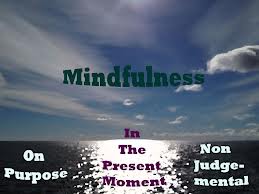There is a great deal of current research about how various meditation practices actually change the brain in positive ways. This is incredibly exciting and with the help of functional brain scans, researchers can see in real time what parts of the brain are stimulated and calmed through these practices. Parts of the brain related to higher brain function have been measured and have actually increased in size from these meditation practices. This is called neuroplasticity.
Some meditation practices teach how to concentrate on one specific image or mantra to help focus the mind. An important and emerging meditation technique is associated with Buddhism and is called Mindfulness. It is actually being integrated into many Western psychology practices not just because of its effectiveness but because it does not require people to embrace a belief system different from what they already have. Reflective thinking and even calming breathing that reduces stress are aspects of Mindfulness. While there are components of this that require sitting for periods of time, I help people to learn to be more present and accepting of what is happening without the tendency to judge. This is challenging because most of us have a dominating inner critical voice that judges, condemns and criticizes us all the time. Our inner critic has often become habituated and over time corrodes our sense of self-esteem. This can become self-destructive and lead to both depression and anxiety of constantly feeling insufficient or “not good enough.” Acceptance of the things going on around us that we cannot change coupled with a deepening understanding of the power of forgiveness is very liberating.
This type of Mindfulness practice is something that one learns to cultivate all the time in all circumstances, not just when sitting down in a formal meditation posture. This really is about changing our attitudes and even our identity. Chronic anger has been shown to actually damage the heart over time. Mindfulness helps to provide greater acceptance versus the tendency to control, often a major component to keeping anger fueled. The key to this work is acknowledging our inner critic and discovering ways to quiet its voice so that we can progressively feel more self-accepting and peaceful in our day-to-day life, both at work and at home.
Posted on July 27, 2013
Howard Brockman, LCSW
Howard Brockman
Latest posts by Howard Brockman (see all)
- How To Deal With Difficult And Aggressive People - September 8, 2014
- Mental Health Self-Test - May 8, 2014
- Psychotherapy or Psychiatry? - January 30, 2014
- Prevent Alzheimer’s Disease - August 22, 2013
- Depression, Mindfulness and the Inner Critic - July 27, 2013
